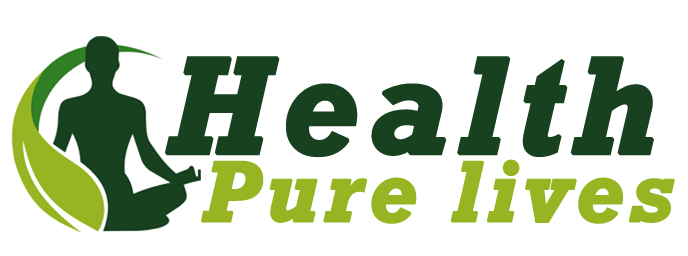Ensuring patient privacy and supporting safe data interchange are top priorities in the constantly changing healthcare industry. Healthcare organizations must carefully balance safeguarding private patient data and facilitating effective data exchange for better care coordination, research, and other legitimate uses.
Release of Information (ROI) solutions can help in this situation by offering a crucial framework to improve patient privacy and speed up data transmission in a safe and legal way.
The Importance of Patient Privacy
Respecting patient privacy is not only morally required but it is also required by law. Patients give their most private health information to healthcare professionals, expecting to be kept private and shielded from unauthorized access or publication.
Protecting patient rights, open communication, and trust are all enhanced by maintaining patient privacy. Additionally, maintaining patient privacy is essential for adhering to legal requirements like the Health Insurance Portability and Accountability Act (HIPAA) in the US and other regulations across the world.
The Challenges of Data Exchange
While maintaining patient privacy is crucial, effective data interchange is also needed in healthcare to deliver high-quality treatment. Data interchange aids prompt and accurate billing procedures, research and public health activities, and care coordination between various healthcare providers.
However, given the plethora of rules, difficulties with technology interoperability, and requirements for patient permission or authorization, transferring health information in a safe and compliant way can be challenging.
The Role of Release of Information Solutions
Outsourcing release of information addresses the difficulties involved in safely and effectively exchanging health information by serving as a link between patient privacy and data interchange. In order to support the regulated distribution of patient information while protecting the privacy and abiding by legal requirements, these solutions provide a comprehensive framework that includes technology, processes, and regulations.
Streamlining Authorization and Consent
ROI solutions make getting patient approval or agreement to disclose their health information easier. Patients may give informed consent, define the extent and purpose of the release, and select the receivers of their information using user-friendly interfaces and electronic forms. This improves efficiency, lessens the administrative burden, and gives patients more decision-making ability.
Ensuring Compliance with Legal and Regulatory Standards
Data communication must adhere to legal and regulatory requirements, which is a crucial component. For the purpose of ensuring compliance with HIPAA and other relevant legislation, ROI systems provide built-in compliance checks and procedures. To assist compliance audits and show responsibility, these systems offer guidance and automation for managing sensitive information, keeping audit trails, and tracking disclosures.
Improved Accuracy and Quality Control
The correctness and caliber of information that is released are ensured by ROI solutions. These solutions reduce the possibility of mistakes and inconsistencies in the published data by automating data entry and validation procedures. This enhances the overall quality of information delivered and lowers the possibility of misunderstandings or miscommunications during patient care.
Secure and Efficient Data Exchange
The dissemination of Information solutions makes use of a secure technological infrastructure to speed up the interchange of medical data. This includes strong encryption techniques, safe data transfer protocols, and identity verification tools for authorized receivers. ROI solutions increase the effectiveness of data exchange operations by using standardized data exchange formats and protocols, enabling easy interoperability among various healthcare systems.
Streamlined Request Processing
Healthcare organizations may find it difficult to handle the numerous demands for patient information. ROI solutions automate request intake, validation, and processing to simplify the request processing workflow. As a result, turnaround times are shortened, mistakes are reduced, and overall operational efficiency is increased. Additionally, automated workflows guarantee that requests are processed consistently and in line with established rules and guidelines.
Auditability and Accountability
Keeping a detailed audit trail and ensuring responsibility when releasing patient information is essential. ROI solutions offer reliable tracking tools for keeping track of and keeping an eye on all data disclosure-related actions. This enables healthcare organizations to track the disclosure of information, spot any security holes or unauthorized entry, and quickly deal with any problems.
Continuous Improvement and Adaptability
ROI strategies change as a result of advancing technology and shifting industry requirements. They are consistently updated to align with legislative and regulatory changes, preserving data security. These technologies also provide chances for performance monitoring and analytics, enabling healthcare organizations to pinpoint problem areas and gradually enhance their information release procedures.
Efficient Record Retrieval
Timely access to accurate and pertinent records is essential when medical professionals must access patient data for clinical decision-making. ROI solutions speed up the record retrieval procedure by facilitating the search for and recovery of specified data from patient records. For healthcare workers, this frees up crucial time so they can make educated decisions and deliver timely, efficient treatment.
Reduced Paperwork and Storage Costs
Traditional methods of information disclosure sometimes entail a significant amount of paperwork and physical record storage. ROI solutions greatly minimize the need for paper-based procedures, lowering administrative and storage expenses. Healthcare organizations can easily manage and retain electronic data because of the digital nature of these solutions, which also reduces the requirement for physical storage space and related costs.
Seamless Collaboration and Interoperability
ROI solutions enable information sharing between various systems and organizations and promote smooth cooperation and interoperability among healthcare providers. In order to make smarter decisions and enhance patient outcomes, healthcare practitioners may now access pertinent patient data from a variety of sources.
Conclusion: Final Thoughts!
In the context of contemporary healthcare, the importance of Release of Information (ROI) solutions in enhancing patient privacy and facilitating data interchange cannot be overstated. Numerous advantages of these systems include increased operational effectiveness, better patient care, and adherence to legal and regulatory standards.
ROI solutions simplify the authorization and permission process, enabling patients to take active decision-making roles and exercise control over disclosing their health information. These solutions streamline the process, lessen the stress on administrative staff, and provide patients the power to make well-informed decisions by offering user-friendly interfaces and electronic forms.





